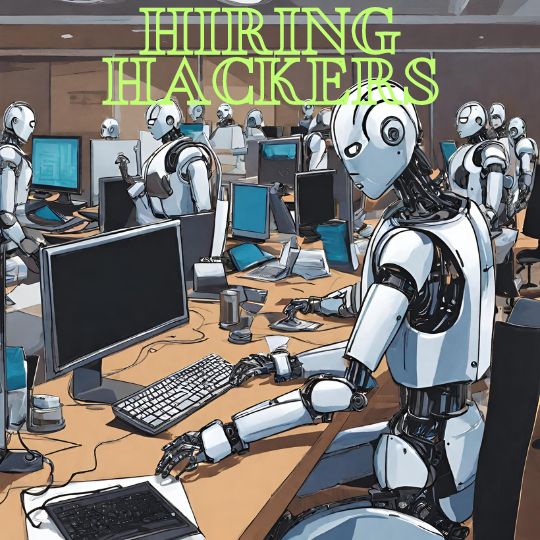Organizations are increasingly realizing the need to proactively protect their sensitive information from malicious attacks. As a result, the demand for professional hackers has seen a significant rise in recent years. These highly skilled individuals possess an intricate understanding of computer systems and networks, allowing them to identify vulnerabilities and strengthen defenses against potential threats. However, with numerous ethical and legal considerations surrounding hacking activities, it is crucial for organizations to understand how to effectively hire professional hackers without compromising security or ethics.
When looking to hire professional hackers for your organization’s cybersecurity needs, there are several key factors you should consider:
1. Thorough Background Checks:
Before engaging with any individual or group claiming expertise in hacking services, it is essential to conduct comprehensive background checks. This process ensures that you only collaborate with reputable professionals who adhere strictly to ethical guidelines and have no criminal history related to unauthorized access or illegal activities.
2. Technical Expertise:
Professional hackers must possess extensive technical knowledge spanning areas such as computer programming languages (e.g., Python), network protocols (e.g., TCP/IP), operating systems (e.g., Linux), database management systems (e.g., SQL), cryptography techniques, and more. This breadth of technical expertise allows them not only to exploit weaknesses but also to develop effective mitigation strategies.
3. Ethical Hacking Certifications:
To ensure competence and professionalism within the field, the presence of specific certifications evidences an applicant’s proficiency in ethical hacking. Among the prestigious certifications are the Certified Ethical Hacker (CEH) and Offensive Security Certified Professional (OSCP). These certifications validate an individual’s skills, knowledge, and adherence to moral ethics while conducting authorized penetration testing and exposing vulnerabilities within targeted networks or systems.
4. Communication Skills & Team Collaboration:
Professional hackers should possess excellent communication skills, allowing them to effectively convey complex technical information to non-technical stakeholders. Additionally, they must be adept at collaborating with IT teams and other security personnel within the organization. Cultivating strong working relationships ensures a unified approach towards addressing vulnerabilities.
5. Ethical Guidelines & Legal Compliance:
When hiring professional hackers, it is crucial to establish and communicate clear ethical guidelines. These guidelines ensure that all hacking activities are conducted strictly within legal boundaries. Furthermore, hackers should demonstrate sound knowledge of relevant laws, policies, and regulations pertaining to their work. Failure to comply with applicable legal frameworks can have serious repercussions for organizations involved in hacking operations.
6. Experience & Track Record:
An applicant’s experience and track record serve as valuable indicators of their expertise and effectiveness in identifying vulnerabilities. Alongside formal qualifications, candidates with extensive practical experience in conducting penetration tests in real-world scenarios are better equipped to detect weaknesses and suggest remedial measures. The ability to successfully mitigate previous attacks on systems is also an indicative factor in identifying a qualified professional hacker.
7. Collaboration With Cyber Security Firms:
Collaborating directly with specialized cybersecurity firms can provide several advantages when it comes to hiring professional hackers. With an established reputation, firms hire individuals who undergo stringent vetting processes, enabling organizations to access top-tier professionals. In addition, the close association of these experts with security firms ensures continuous learning and updates on new threats that can be applied to enhance protective measures within the organization.
Expanding on this comprehensive guide, we delve into four additional sections offering insights into specific aspects related to the topic:
I. Techniques Employed by Professional Hackers:
The techniques employed by professional hackers vary depending on the scope and objective of each assignment. Compromising network systems, vulnerability scanning, password cracking, social engineering, and exploiting software vulnerabilities are just a few examples of the methods employed by these experts. They utilize their technical prowess to identify weaknesses in both hardware and software components, with the ultimate goal of strengthening an organization’s cybersecurity defenses.
II. Hiring Freelance Hackers vs. In-House Specialists:
Organizations have two primary options when it comes to hiring professional hackers: engaging freelance individuals or developing an in-house team. While freelancers offer flexibility and cost efficiencies for short-term projects, in-house specialists enable continuity and long-term strategies. One solution may not fit all organizations’, so carefully weighing the benefits and expenditures associated with each option is essential to making an informed decision that aligns with your organization’s unique needs.
III. Issues Concerning Legal Boundaries & Compliance:
Engaging professional hackers only within the limits of legality is a paramount consideration for organizations seeking to strengthen their cybersecurity efforts. As hacking activities can potentially infringe upon privacy laws, data protection regulations, and other applicable legislation, it is imperative to consult legal professionals familiar with relevant jurisdictions. Maintaining transparency and strict adherence to legal boundaries ensures that successful hacking operations are free from undue legal risks while upholding ethical standards.
IV. The Importance of Continuous Training & Skill Development:
The field of cybersecurity is dynamic and ever-evolving. Therefore, professionals in this sector must continuously upgrade their skills, knowledge, best practices, and awareness of trending technologies to adapt to reach new challenges posed by technological advancements. Attending conferences, participating in team exercises, and pursuing advanced courses are just a few examples of ways professionals can stay abreast of forthcoming threats and emerging defense mechanisms. Expertise combined with up-to-date knowledge allows organizations to anticipate potential vulnerabilities and institute preventive measures without compromising existing infrastructure.
In conclusion, the demand for professional hackers has witnessed significant growth in recent years as organizations increasingly prioritize cybersecurity. When hiring these experts, essential considerations include thorough background checks, certifications, testimonials, and technical expertise. Additionally, hackers must adhere to relevant ethical guidelines and comply with all applicable laws, policies, and regulations. Apart from hiring individuals, firms specializing in cybersecurity collaborations can also offer benefits in providing access to experienced professionals. With ongoing training and skill development

